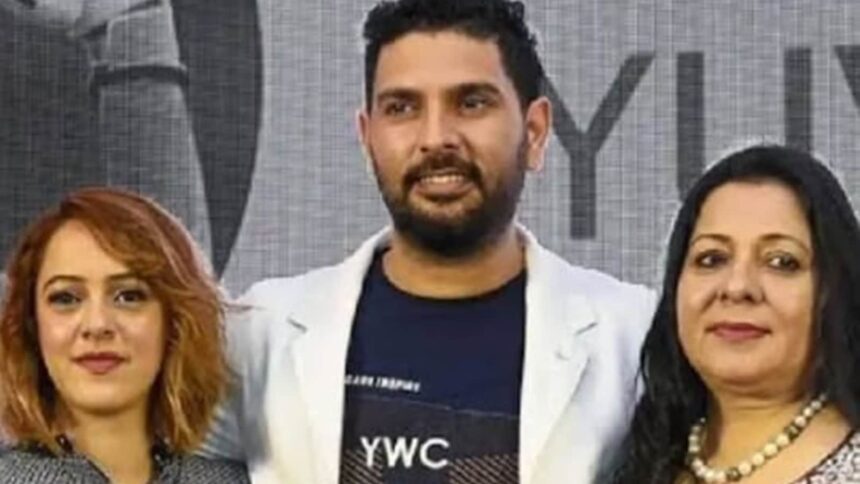Building a bond with your child’s partner can be a delicate experience — full of hope, hesitation, and a whole lot of heart.
For Shabnam Singh, meeting , the woman who would eventually marry her son, former cricketer , was anything but traditional. “(Should I tell the truth or lie? I had some functions to attend). I found this cute little girl trying to make him catch popcorn,” she recalled during a recent interview with , reflecting on her first impression of Hazel with both affection and humour.
While the beginning of Yuvraj and Hazel’s love story had its fair share of slow-burn moments — including Hazel ignoring Yuvraj for nearly three years before finally saying yes — the mother-son duo has spoken openly about the joy of having Hazel in their lives. In an earlier interview with The Hindustan Times, Shabnam said, “It was an incredibly special moment for me to see him getting married and to know that my responsibility is less today because Hazel is there to also take care of him. It’s a good feeling. I would like to be more at ease now. I am glad that Yuvi is in good hands with Hazel.”
Yuvraj, who appeared in an episode of with Hazel, also reflected on falling in love with her. He mentioned in Hindi, “I said, ‘She didn’t give me the time of day for three years, and I never got a chance to be with her. I don’t know what this girl thinks of herself. Stay away, but I still want to marry this very girl.’ After three and a half years, she made me chase her for another year. And only after that did she finally say yes.”
Sonal Khangarot, a licensed rehabilitation counsellor and psychotherapist, tells , “For parents, trust and connection grow best when rooted in authenticity. Just as we nurture relationships within the family, developing a bond with an adult child’s partner requires showing up genuinely, without pretenses or guardedness.”
Relationships aren’t built overnight, states Khangarot. “According to attachment theory, trust develops gradually through consistent, . Just like a garden, it needs tending, patience, and space.”
“Every person brings with them a unique history — shaped by their upbringing, culture, and values. Rather than rushing to judgment or comparison, approach your child’s partner with curiosity and respect,” states the expert.
Khangarot observes, “As a therapist, I often see single parents — especially those who’ve been the sole emotional anchor — feel a deep sense of relief when they believe their child is “in good hands.” It’s natural for them to seek emotional partnership or support for their child in their spouse, almost like passing on a baton of care.”
However, while this intention comes from love, it can unconsciously place a lot of emotional responsibility on the partner. If not , it may create pressure or expectations that strain the couple’s dynamic. It’s important to allow the relationship to evolve organically, not as a replacement, but as a new, shared journey.








